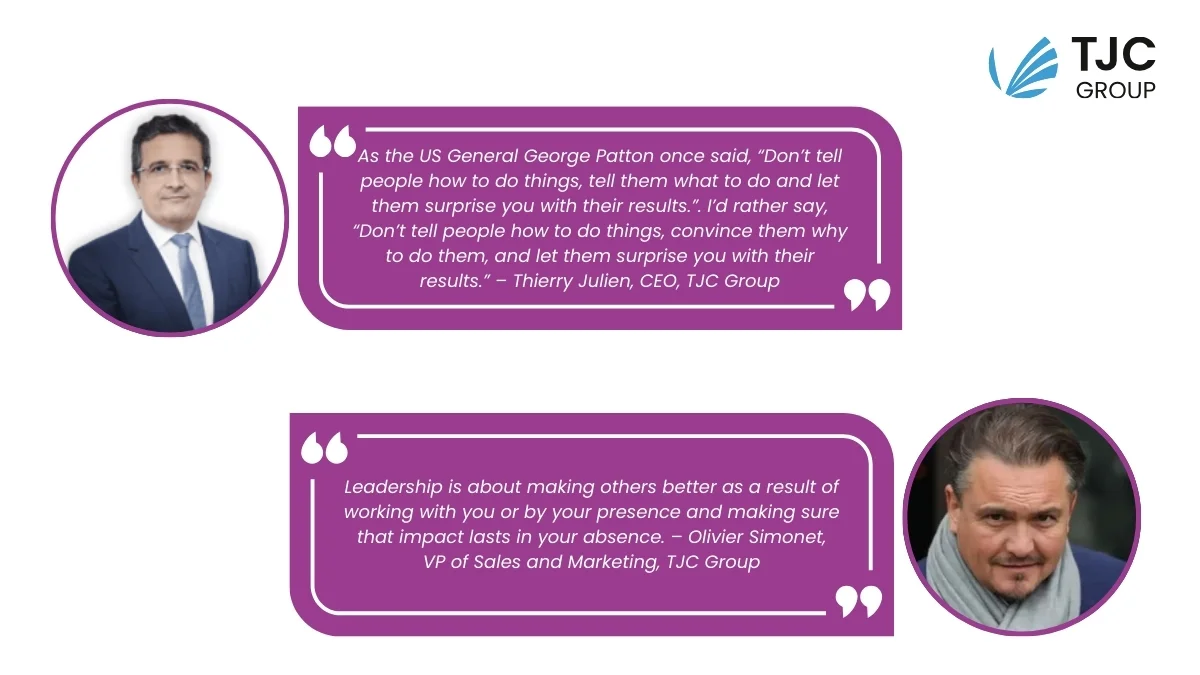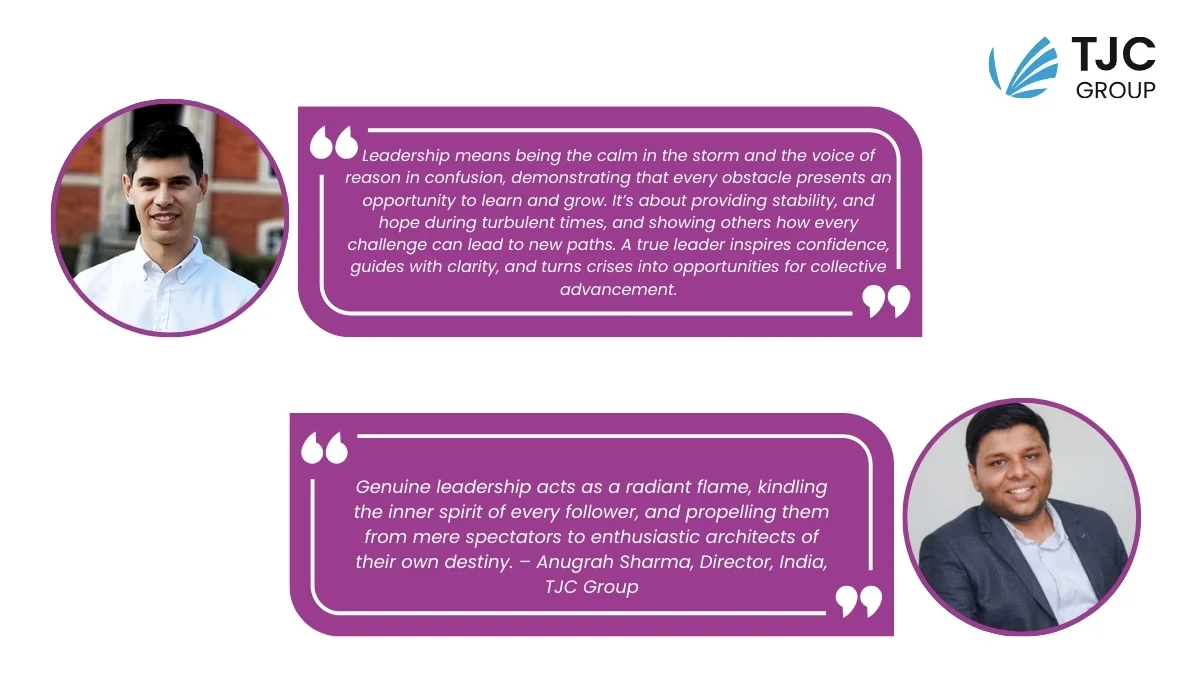Leadership is more than just having good communication skills. It requires tremendous amounts of patience and practice! All the leaders – whether a CEO, an IT team leader, a sports coach, or a schoolteacher – to a certain degree do the same thing.
In today’s corporate world, good leadership is of utmost importance. After all, it helps shape the present and future of the organisation through its workforce.
Table of contents
Introduction
Warren Bennis says, “Leadership is the capacity to translate a vision into reality.”
Chan Master Fuchan Yuan says, “There are three essentials to leadership: humility, clarity, and courage.”
We will fall short of space to describe what world leaders or even normal people feel about leadership. But, in its truest, simplest form – leadership is about guiding your workforce, enabling them to work together in groups and as an individual, further yielding impactful outcomes.
It is always said that strong management can either make or break the company. Having a powerful yet purposeful leadership has always been the norm, and it has become even more evident in today’s era.
What is leadership?
People often mistake leadership to be an innate quality; however, it is not something that you are but something you do. It is a skill that one can learn and develop over time. At the core are mindsets, expressed through detectible behaviours, leading to significant results. An example here would be the communication skills of the leaders. Is the management effectively communicating with its employees or are they engaging others with its members? The effectiveness of leadership can be assessed, primarily, by focusing on its behaviour – as it allows one to be more objective.
The more empathetic and compassionate leaders are, the more the employees and the organisations thrive. Today, we see several examples of management or team leaders being toxic to their employees and team members – something that we, at TJC Group, absolutely frown upon. For us, it is imperative that our employees are treated with respect and compassion.
A catch here – sometimes, people in the position of the leader, may undergo a drastic change in their behaviour – sometimes for the better, sometimes for the worse. Often it is difficult to pinpoint the reason for the change; however, one of the keys to unlocking and understanding their behavioural shifts is focusing on the individual’s mindset. Over time, they tend to become more conscious about their thoughts and beliefs, tending completely to their authentic selves.
Leadership, at its essence, is the fusion of inner strength and compassion, guided by empathy, resilience, and a purposeful vision. True effectiveness shines when we nurture the strength within others, guiding them through challenges with mindfulness. Real leadership embodies strength, care, and a clear purpose, urging us to grow, lead by example, and honour the spiritual dimensions of our journey. – Renuka Sharma, HR Manager, TJC Group.
How is leadership exercised?
Truth be told, there are numerous contexts and ways in which one can exercise leadership. However, if we quote McKinsey’s analysis, nearly two hundred thousand people in 81 organisations across the world, stated that there are four types of behaviours accounting for at least 89% of the effectiveness of management –
- Operating with a mindset of achieving powerful results
- Being supportive
- An orientation and knack for problem-solving
- Seeking different perspectives
Effective and purposeful leaders are open to learning, knowing that a situation that works today might not be efficient tomorrow. The fact of the matter is that strategies created by the people at the management must reflect an organisation’s context and stage of evolution. Here, a key lens is organisational health – which can be a holistic set of factors, enabling organisations to grow and gain success over time. Additionally, if one takes a situational approach, there are high chances of focusing more on relevant behaviours that make an organisation much healthier.
Quintessentially, management must also develop skills that can help them guide their employees and guide the organisation as a whole. Further leading to retaining talent, promoting a healthy work culture, as well as, attracting more talent.
At TJC Group, from the CEO to all the team leads, everyone promotes a healthy and happy work environment. The concept of micro-management is far from reality in our organisation, and we ensure that each employee gets treated with utmost respect and compassion. Not just that, TJC Group leaders ensure that team members are guided properly not just on the work front but also groomed in their personality development and soft skills.
Leadership in the bygone years
In the decades and eras gone by, the terms “leadership” and “management” emphasised providing technical expertise and direction only rather than guiding on other aspects. The main reason for the skills of leadership of the past decade was focused on the traditional, industrial economy command-and-control organisations – where, everyone was majorly and exclusively concerned about maximising value for their shareholders.
Previously, leaders had three roles:
- The role of planners – is focused on developing strategy and further translating the strategy into concrete steps.
- Directors – the ones that assign responsibilities.
- Controllers – those responsible for ensuring that employees complete their tasks while adhering to the set plans and strategies.
The limitations of traditional management styles
To be fair, traditional management styles, once upon a time, were revolutionary. It helped build large-scale global enterprises, materialistically and enormously improving lives over the past 200 years or so. However, there is a statute of limitations for everything – and in the 21st century, traditional leadership methods have approached their limits.
One of the major concerns of this approach is that – it doesn’t guarantee a happy workforce. As a matter of fact, as per reports, 56% of workers in the US claim their bosses to be toxic – ranging from mild to high. The same report states that 75% of workers say dealing with their managers happens to be the most stressful part of their day.
In today’s 21st century and of course, for the upcoming ones, having a fundamentally new, more effective, and inclusive leadership approach has become mandatory – not just for a happy workforce but to survive in the complex business environment.
The emerging, more effective leadership approach
Quite controversial because of its nomenclature, the newer and emerging approach to leadership is described as “servant leadership”. The idea of this approach is pretty simple – instead of being a manager that controls people, adopt an approach that’s to be in service of the people they lead. It focuses on how leaders can make their team members feel more relaxed and stress-free at work, contributing to their betterment – physically, emotionally, and cognitively. In fact, this approach enhances team performance, leading to better business outcomes. So, you see – despite its controversial nomenclature – it is a win-win for everyone.
With this newer, more effective approach to leadership, people in that position, are practising empathy, gratitude, self-awareness, and many more skills alike. Today, the primary objective is to build agile, employee-centric, and digitally enabled organisations. Therefore, adapting the approach of “servant leadership” will allow leaders to provide appreciation and support to their team members – creating a psychological safety net, and further enabling their team members to collaborate, innovate, and raise issues as deemed appropriate. Interestingly, this includes celebrating small achievements on the way to reaching bigger goals, improving workforce well-being through more inclusive discussions, and so on.
How can leaders empower employees?
Surprisingly, empowering employees takes a little more hands-on leadership approach. It is said that leaders who empower their team members successfully through methods like coaching are around four times more likely to outperform rival companies. Wondering why? Well, compassionate, purposeful leaders have the upper hand in making swifter business decisions.
As we mentioned before, leadership isn’t something you are, but something you do. It is a skill that can be developed over time. So, if you are a leader looking to empower your team members, here are five quick tips to get you started –
Provide clear rules
Giving your team members clear rules (in an empathetic way) like what are the role remits and responsibilities helps contain the anxiety and stress associated with work. It allows teams to stay focused on their primary tasks.
Establish clear roles
One of the most important tips for empowering leadership is establishing clear roles. As per their experience and expertise, assign team members their respective tasks – with a certain person having the authority to make certain decisions.
Avoid micro-management
Micro-management is more toxic than the person micromanaging the team. It creates a layer of discomfort and anxiety amongst team members; and drains down their confidence and enthusiasm. No matter what, avoid the micro-management of your team.
If you have delegated a task, give them time to complete it. Of course, if you need an update about a particular task, you can reach out to team members and ask them compassionately like “Hey, can you please give me an update on this task? No rush”, or “Can I please ask you to provide an update on this task”, and so on.
Help with personality development
Apart from guiding your team members with their day-to-day tasks, it is equally important to help them develop their personality and communication skills. As leaders, help your employees learn how to have difficult conversations, how to communicate internally and externally, etc., so that they are on par with the company culture.
Encourage feedback
As leaders, hearing feedback from your juniors can be difficult, but truly – it is one of the most important and effective ways to ensure that you are an EMPOWERING leader. Keep an open mind and encourage feedback from others, at all levels of your organisation on how effective and empathetic you are as a leader, where you should improve, and so on.
Leadership at TJC Group
TJC Group rides high on its vision and mission of ensuring a friendly, culturally sound, and amiable work environment. Here’s what our senior leadership have to say –


Conclusion
Good leaders take organisations and their workforce to unimaginable heights. And today’s new approach to leadership is far more effective than the traditional ones. The dynamics may be complex, but countless studies show empirical links between effective leadership, employee satisfaction, customer loyalty, and profitability.
It’s time to bid adieu to the traditional approach and adopt a newer one. In the upcoming blogs, we will discuss strategies for effective leadership and more.
Meanwhile, if you want more information on TJC Group and our solutions for data archiving, system decommissioning, and e-invoicing, contact us here.









